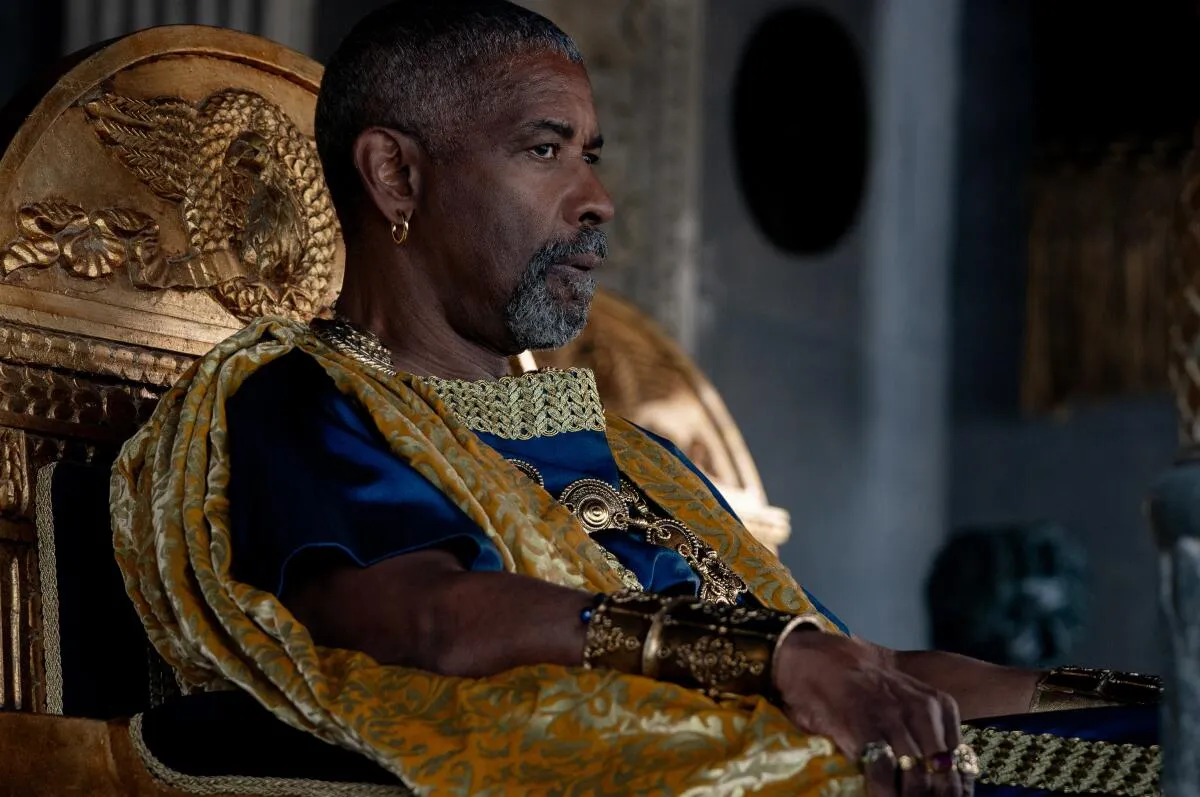The feel-good story of the holiday season: the grand boy-king, exiled from his homeland and from the throne to wallow in a life of oppression and besmirchment, yet restored in an instant—several instances, perhaps—to re-up the so-called glory of Rome.
Or, so it is said and so it goes in ”Gladiator II,” a rather self-important offering now a quarter century removed from its source material, the previous Ridley Scott iteration in the series.
Audiences have largely raved in favor of the new offering, starring Paul Mescal as Lucius, the son of Princess Lucilla (Connie Nielsen) from the first film—and, apparently, the late Maximus, who therein died valiantly while eliminating the corrupt Emperor Commodus.
It was Maximus’ aim to restore the glory of the Roman Empire by way of the Roman Republic, which was, by the wishes of Lucilla’s late father, Emperor Marcus Aurelius, to be once again the prime authority.
This, as the sequel makes clear, did not happen. Instead, twin emperors came to power with perhaps even fewer mores than Commodus, ruling by way of intrigue, cronyism, and an insatiable appetite for war.
The rightful heir Lucius, meanwhile, has lived in African exile from their violent gaze and has become a slave in Rome by way of war. He, too, comes to represent something of a resistance to the powers that be, fighting in the Colosseum mostly out of “rage,” as the Black procurator Macrinus (a dazzling Denzel Washington) so aptly notes.
It’s curious how little of the story is new, compared with the former film. Gladiator-slave in Rome, fighting to stay alive but also to prove a point: that Rome just ain’t what it used to be. Also repeating again is an African compatriot (Peter Mensah as Jugurtha, who dies quickly), a plot against the throne largely foiled by a snitch, and even a few characters reprising their roles (literal and figurative) from the first film.
Even more peculiar is that by the end of the film, the ideal of the Roman Republic is all but abandoned, with a valiant Lucius overcoming all obstacles—including lions, tigers, and feral baboons—not to restore rule to the people, but to rule instead as more of noble king. (A remarkably short task, given his four predecessors.)
Indeed, empire itself becomes a protagonist in “Gladiator II,” even if no longer at the hands of greedy twins bent on conquest.
Far and away, the most poignant scene in the film is between Macrinus and Lucilla, where, the African villain reveals that he was a slave under the rule of her father Marcus—making the late ruler’s wistful republican ideals something of a moral wash. It is apparently on these grounds that Macrinus sees himself as a rightful heir, having taken the throne by cunning after a life of ascent from the empirically imposed dung-heap.
Even so, we are left thereafter with a very dead African mastermind, drowned in the waters of Rome after failing to kill Lucius between opposing strains of the Roman Army. So much for Black power.
In the end, it is the European juggernaut that is restored, inelegantly so, and at the expense of an African former slave, power-hungry though he may have been. Needless to say, I found it hard to conceive of clapping at the triumph of the new young emperor. What does he bring that is truly new? Violence? Revenge?
Alas, so it goes in love and war.
Nate Tinner-Williams is co-founder and editor of Black Catholic Messenger.








